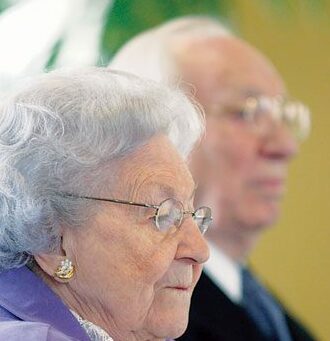Mutual respect and negotiation gave birth to the Constitution—and will preserve it today.
We live in a time when elected officials have become less willing to seek common ground. Some resist the very idea of government and scoff at the principle of compromise. But government is necessary because people need it to resolve their conflicts, and compromise is the tool by which governing officials hammer out such conflict resolution. If we all agreed with each other, we would not need government.
Compromise has been and will remain vital to sustaining our 200-year-long experiment with self-government. It is a process of give and take, of blending and adjusting. It is not consensus, for rarely is consensus possible, and to make consensus the standard makes self-government untenable.
To acknowledge the importance of compromise is to recognize that we have different preferences, priorities, and approaches. It is also to acknowledge that everyone knows something and no one knows everything.
But compromise is often criticized as being unprincipled, too conciliatory, a slippery slope away from core values. Part of the resistance to compromise comes from a lack of mutual respect and a false sense of confidence about our own ideas and assumptions. True, not all compromises are good or right. Chamberlain’s compromise with Hitler over parts of Czechoslovakia, for example, was a mistake. But to label all compromises as bad is to learn the wrong lesson from history. On many important issues, resolving a disagreement was possible only with compromise.
In 1787 James Madison arrived at the Constitutional Convention in Philadelphia with a plan for a strong national government. Madison’s plan provided for a bicameral legislature, an executive chosen by the legislature, and a strong judiciary. Power in the legislature was proportionate to state population: an advantage for the large states.
For the small states, being perpetually outnumbered in the national legislature was not acceptable. They proposed a plan with a unicameral legislature, an executive removable by state majority, and a more limited judiciary.
The debate became so heated that Madison threatened to dissolve the Union. The intensity of the differences prompted George Washington to say, “To please all is impossible, and to attempt it would be vain.”¹
This conflict was resolved with the Great Compromise. As David Brian Robertson wrote, “They compromised . . . by devising one legislative chamber based on population and another based on the states as political units. They constructed a new kind of federalism, in which the national and state governments would share political authority.”²
What lessons can we learn from the Great Compromise? First, neither side got all of what it wanted. Second, solving some matters but not others may be all we can do now. Evidence that the Framers knew there was more work to be done in improving the Constitution is that they provided for a means of amending it.
The Constitution’s inspired design requires the same spirit of compromise and mutual respect today as was shown by the Framers in 1787. As President Hugh B. Brown put it in a 1968 BYU speech, “Mutual respect is necessary for a democracy to function, and denigrating another’s patriotism, misrepresenting an opponent’s positions, and refusing to cooperate even on matters on which there is agreement undermine the relationships needed to resolve differences.”³

This essay is adapted from an address delivered May 19, 2015, by David B. Magleby, BYU’s 2014 Karl G. Maeser Distinguished Faculty Lecturer and a BYU professor of political science. The full text was published in BYU Studies (byustudies.byu.edu).
Notes
1. David Brian Robertson, The Original Compromise: What the Constitution’s Framers Were Really Thinking (New York: Oxford University Press, 2013), p. 26.
2. Ibid., p. 14.
3. Hugh B. Brown, “God Is the Gardener,” commencement address, BYU, Provo, May 31, 1968, available online here.












